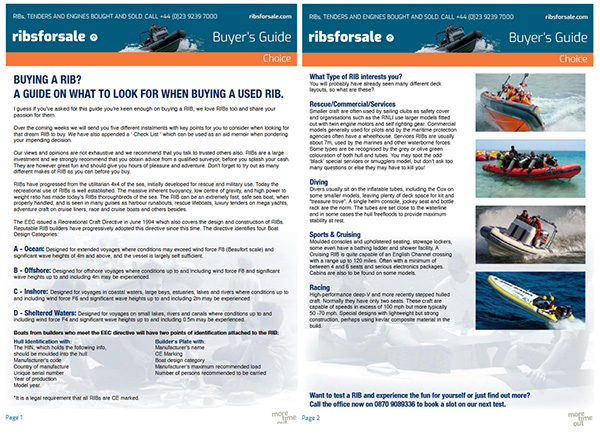Being a “Green” RIB Owner – Part 2
Best Practice For RIB Owners
Sewage
Not that many RIBs have a head installed, nor holding tanks – but it doesn’t take much to realise that it is no longer acceptable to pump your sewage all out whenever and wherever it suits and it is our responsibility to consider the effects that may have on the surrounding environment. Black water (raw sewage) discharges are likely to become less common as, since 2006, the Recreational Craft Directive (RCD) has required all new vessels to have provision for a holding tank to be fitted. However, in the majority of cases, the waste water from onboard sinks and showers (known as grey water discharges) empties directly into the water.
Waste
Whilst onboard your RIB it is easy to collect a fair amount of rubbish and unlike at home where you have your wheelie bin just outside there is very little space to store it. Sadly, the quantity of litter found in our seas and along our coasts is rising and this has a serious impact on the environment and wildlife. Contrary to popular belief, marine litter does not provide a suitable habitat/ artificial reef for marine organisms. It has been reported that some types of litter can persist in the marine environment for periods up to 500 years. Rubbish means all food, domestic and operational wastes produced on board (except sewage). This includes food wastes, paper products, rags, glass, metal, bottles, crockery and similar refuse from all vessels.
It’s not rocket science – if you didn’t get if from the sea, don’t put it in the sea. Even the smallest RIB has space for a black bin bag full of your day’s accumulated rubbish – there’s no excuse.
The UK has strict rules on dumping garbage at sea with substantial penalties for offenders (see Briefing note 06/02: Prevention of Pollution from garbage). Food wastes may only be disposed of at sea if they have been pulverised and you are at least 3 miles off shore (12 miles in the North Sea or English Channel). There are rules for ports and terminal operators to provide adequate disposal facilities ashore.
For further information on this topic visit the Green Blue website.
Oil and Petrol
To reduce the amount of oil entering the marine environment from your boat just follow this common sense advice:
Check your bilge before pumping as oil and fuel can leak from the engine and gather in the bilge.
If you have an inboard engine on your RIB, use a drip tray under the engine to catch leaks (this is a legal requirement on many inland waterways).
Use a bilge sock to absorb oil and fuel in the bilges.
Use a funnel when pouring fuel or oil.
Use a fuel collar to catch drips when refuelling
Avoid overfilling your tank to reduce the risk of fuel overflowing from vents.
Allow room for expansion in the tank.
Maintain fuel lines, connections and seals to help avoid leaks
Transfer oil and fuel in proper containers
Dispose of waste oil at appropriate facilities
Dispose of all oily or fuel-soaked materials in hazardous waste containers
Avoid using oil and fuel on the pontoons, other than on those dedicated to refuelling
If possible, on land do not to use oil and fuel within ten metres of the shore
Contact the relevant environment agency to report any oil spills or call the 24 hour pollution hotline on 0800 807060
Never use detergents to deal with spills. Detergents may disperse the fuel or oil but they can be more toxic to aquatic life than the oil itself
Carry a spill kit on board and learn how to use it
Consider using biofuels
Find out where you can dispose of or recycle old oil at the oil bank line
Never store oil and fuel in areas which are prone to flooding, extremes of wind or tide

















